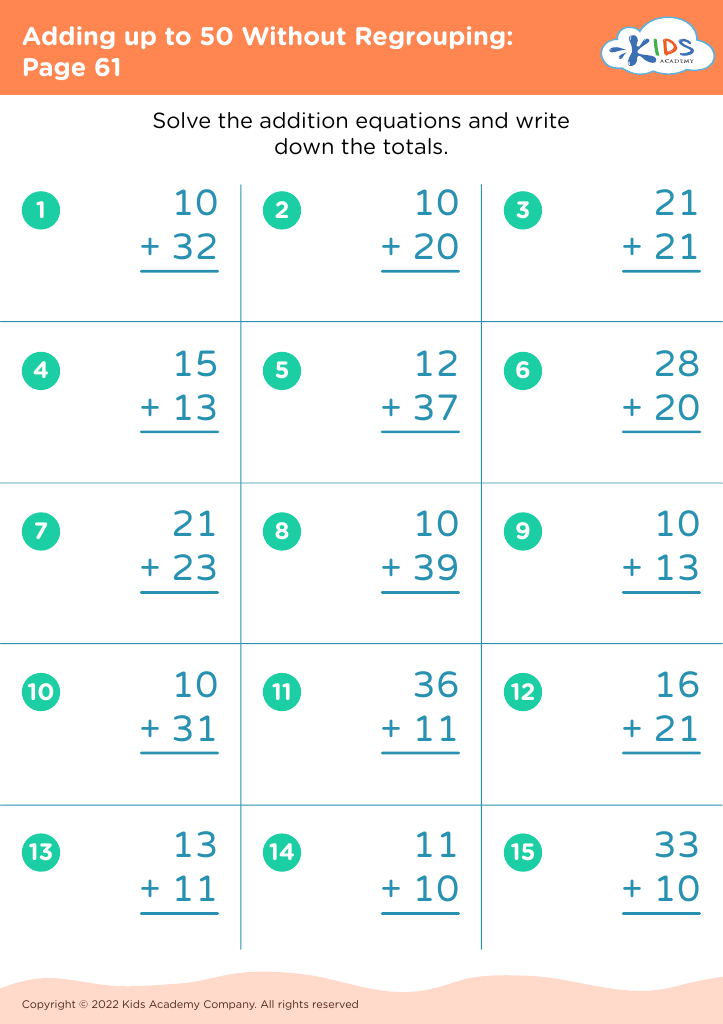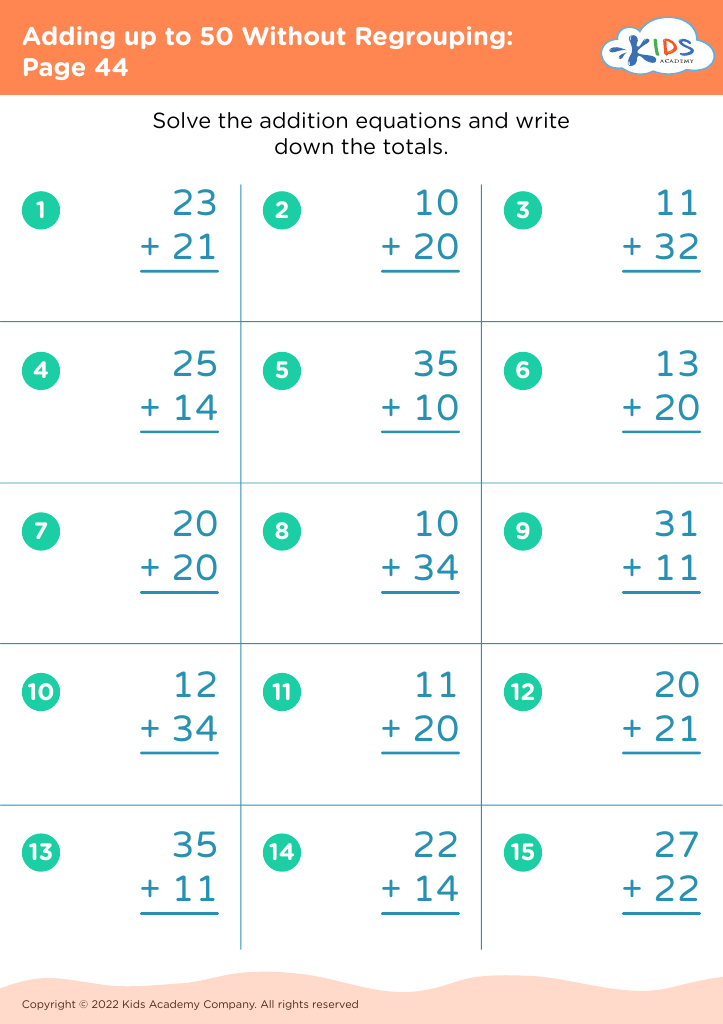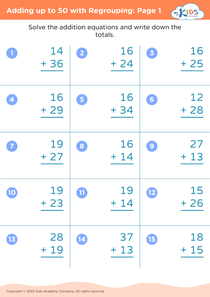Improve counting skills Adding up to 50 Without Regrouping Worksheets for Ages 4-7
6 filtered results
-
From - To
Boost your child's counting abilities with our "Improve Counting Skills: Adding up to 50 Without Regrouping" worksheets, perfect for ages 4-7. Designed to build a strong math foundation, these engaging exercises help young learners practice addition in a fun and interactive way. Without the complexity of regrouping, children can focus on enhancing their counting skills and understanding basic arithmetic. Each worksheet features colorful illustrations and simple problems to keep kids motivated and confident as they add numbers up to 50. Ideal for home or classroom use, these printables make learning math an enjoyable adventure!
Developing counting skills, including adding up to 50 without regrouping, is a fundamental building block for young children aged 4-7, and both parents and teachers should prioritize it. At this developmental stage, numeracy skills form the basis for future mathematical concepts and problem-solving abilities.
First, mastering these counting skills enhances a child's number sense, which is their intuitive understanding of numbers and their relationships. This foundation is critical because it prepares them to tackle more complex mathematical tasks in later grades. Simple addition without regrouping helps solidify this understanding by allowing kids to focus on straightforward computational techniques without the extra layer of complexity that regrouping introduces.
Secondly, developing counting skills also contributes to cognitive development. During these formative years, engaging in activities that involve counting and simple arithmetic supports the growth of logical thinking and memory.
Moreover, early success in math can build a child's confidence and interest in the subject, leading to better attitudes towards learning and higher academic performance overall. Encouraging and helping children improve these skills not only sets the stage for success in mathematics but also promotes overall academic curiosity and resilience.
In summary, counting up to 50 without regrouping is more than just a math exercise; it’s a foundational skill that supports broader cognitive development, academic confidence, and future learning success.
















